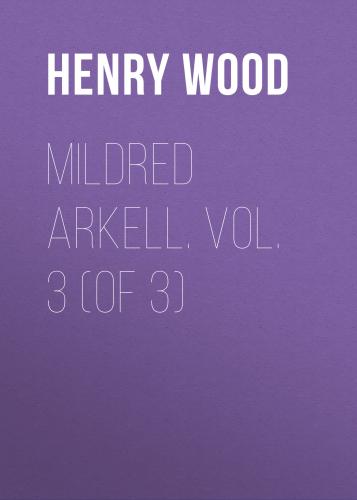He slowly took his elbow from the mantel-piece, where it had been leaning. "No. But if I were, it would be something new: it is not often they have to mark me late."
Kissing his mother, he walked out of the house in a dreamy mood, and with a slow step; not with the eager look and quick foot of a schoolboy, in dread of being marked late on the cathedral roll. As he let the gate swing to, behind him, and turned on his way, a hand was laid upon his shoulder. Henry looked round, and saw a tall, aristocratic man, looking down upon him. In spite of his mind's trouble, his face shone with pleasure.
"Oh, Mr. St. John! Are you in Westerbury?"
"Well, I think you have pretty good ocular demonstration of it. Harry, you have grown out of all knowledge: you will be as tall as my lanky self, if you go on like this. How is Mrs. Arkell?"
"Not any better, thank you. I am so very pleased to see you," he continued: "but I cannot stop now. The bell has been going ten minutes."
"In the choir still? Are you the senior boy?"
"Senior chorister as before, but not senior boy yet. Prattleton is senior. Jocelyn went to Oxford in January. Did you come home to-day?"
"Of course. I came in with the barristers."
"But you are not a barrister?" returned Henry, half puzzled at the words.
"I a barrister! I am nothing but my idle self, the heir of all the St. Johns. How is your friend, Miss Beauclerc?"
"She is very well," said Henry; and he turned away his head as he answered. Did St. John's heart beat at the name, as his did, he wondered.
"Harry, I must see your gold medal."
"Oh, I'll fetch it out in a minute: it is only in the parlour."
He ran in, and came out with the pretty toy hanging to its blue ribbon. Mr. St. John took it in his hand.
"The dean displayed taste," was his remark. "Westerbury cathedral on one side, and the inscription to you on the other. There; put it up, and be off. I don't want you to be marked late through me."
There was not another minute to be lost, so Henry slipped the medal into his jacket-pocket, flew away, and got on to the steps in his surplice one minute before the dean came in.
There was a bad practice prevailing in the college school, chiefly resorted to by the senior boys: it was that of pledging their goods and chattels. Watches, chains, silver pencil-cases, books, or anything else available, were taken to Rutterley, the pawnbroker's, without scruple. Of course this was not known to the masters. A tale was told of Jones tertius having taken his surplice to Rutterley's one Monday morning; and, being unable to redeem it on the Saturday, he had lain in bed all day on the Sunday, and sent word to the head master that he had sprained his ankle. On the Monday, he limped into the school, apparently in excruciating pain, to the sympathy of the masters, and intense admiration of the senior boys. Henry Arkell had never been guilty of this practice, but he was asking himself, all college time, why he should not be, for once, and so relieve the pressure at home. His gold watch, the gift of Mr. Arkell, was worth, at his own calculation, twenty pounds, and he thought there could be no difficulty in pledging it for ten. "It is not an honourable thing, I know," he reasoned with himself; "but the boys do it every day for their own pleasures, and surely I may in this dreadful strait."
Конец ознакомительного фрагмента.
Текст предоставлен ООО «ЛитРес».
Прочитайте эту книгу целиком, купив полную легальную версию на ЛитРес.
Безопасно оплатить книгу можно банковской картой Visa, MasterCard, Maestro, со счета мобильного телефона, с платежного терминала, в салоне МТС или Связной, через PayPal, WebMoney, Яндекс.Деньги, QIWI Кошелек, бонусными картами или другим удобным Вам способом.
